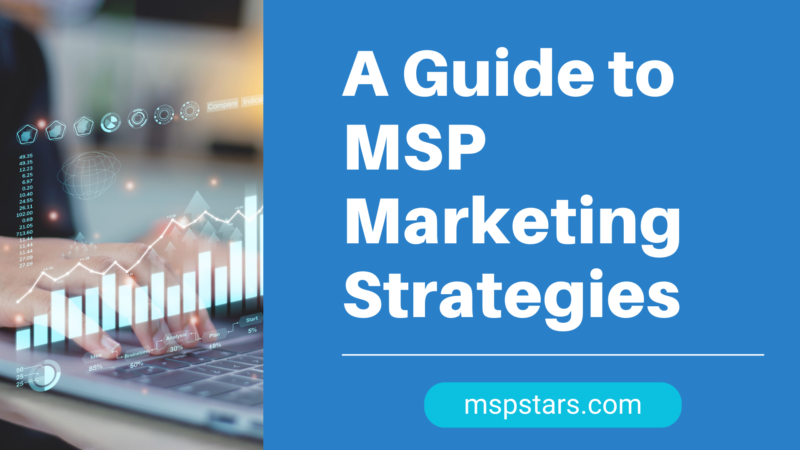The Ultimate Guide to MSP Marketing Strategies in 2025
The Ultimate Guide to MSP Marketing Strategies in 2025
In 2025, the competitive landscape for Managed Service Providers (MSPs) is becoming more intense, necessitating the implementation of effective marketing strategies. To remain competitive and attract new clients while retaining existing ones, managed service providers (MSPs) must modify their marketing strategies in this swiftly changing digital era. This exhaustive guide will investigate the most innovative MSP marketing strategies for 2025, with an emphasis on the utilisation of emerging technologies, the development of personalised content, and the implementation of data-driven decision-making. MSPs can improve their brand visibility, generate high-quality leads, and ultimately promote sustainable growth in an IT services market that is constantly evolving by employing these innovative strategies.
What is the Importance of MSP Marketing in Today’s Market?
MSP marketing plays a crucial role in the success of Managed Service Providers (MSPs) in today’s competitive market. It helps MSPs stand out from the competition, attract new clients, and retain existing ones, especially when they promote their MSP through high-quality marketing materials. Effective marketing strategies enable MSPs to showcase their services, build brand awareness, and establish credibility in the industry. Engaging with prospects through targeted marketing efforts is key to driving business growth and increasing revenue, which can be achieved more efficiently with a knowledgeable marketing team.
In today’s digital age, where the market is saturated with service providers, a robust marketing plan is essential for MSPs to differentiate themselves and connect with their target audience effectively. Leveraging the right marketing channels and techniques can significantly impact the visibility and overall success of an MSP’s business.
By focusing on content marketing, email marketing, and social media marketing, MSPs can create a comprehensive marketing strategy that resonates with their audience, drives engagement, and ultimately leads to business growth. Investing in marketing efforts is not only crucial for attracting new clients but also for building long-term relationships and fostering customer loyalty, which can be further enhanced by leveraging targeted video marketing.
Key Role of Marketing Strategies for MSPs
The key role of MSP marketing strategies cannot be overstated in today’s dynamic market environment. Effective marketing strategies are the backbone of any successful MSP business, enabling providers to reach their target audience, communicate their value proposition, and drive conversions. By understanding their target market’s needs and preferences, MSPs can tailor their marketing messages and initiatives to resonate with potential clients and stand out in a crowded marketplace, often requiring the insights found in a detailed msp marketing guide.
Crafting a well-thought-out marketing plan that encompasses a mix of traditional and digital marketing tactics is vital for MSPs looking to expand their business and increase their market share, often involving various video marketing strategies. From lead generation to nurturing prospects through the sales funnel, marketing strategies play a pivotal role in driving revenue and maximizing ROI for MSPs. By leveraging the right marketing tools and techniques guided by a comprehensive MSP marketing guide, MSPs can effectively showcase their services, build brand loyalty, and drive sustainable growth.
MSPs that prioritize marketing strategies as part of their overall business strategy are better positioned to adapt to changing market dynamics, stay ahead of the competition, and capitalize on new opportunities for business expansion. Investing in marketing initiatives that align with the company’s goals and values can yield long-term benefits in terms of market positioning, brand recognition, and customer acquisition. Working with a specialized marketing company can streamline these efforts.
Impact of Digital Marketing on Managed Services Business Growth
In today’s digital landscape, the impact of digital marketing on MSP business growth is undeniable. With the majority of consumers turning to online channels to research products and services, having a strong digital presence is essential for MSPs looking to attract and retain clients. Digital marketing offers a cost-effective way for MSPs to reach a wider audience, engage with prospects in real time, and measure the success of their marketing campaigns accurately.
Through digital marketing channels such as social media, email marketing, and content marketing, MSPs can connect with their target audience on a more personal level, build credibility, and drive conversions. By leveraging data analytics and insights from digital marketing campaigns, MSPs can refine their strategies, optimize their messaging, and improve their overall marketing performance. Embracing digital marketing technologies and platforms can give MSPs a competitive edge in the market and position them as industry leaders in the managed services sector by effectively using outbound marketing strategies.
The shift towards digital marketing has revolutionized the way MSPs approach customer acquisition, lead generation, and brand building. By leveraging digital marketing tools and techniques effectively, MSPs can elevate their brand visibility, expand their reach, and drive sustainable business growth in today’s hyper-competitive market landscape.
How to Develop a Comprehensive MSP Marketing Plan?
Developing a comprehensive MSP marketing plan is essential for providers looking to establish a strong foothold in the market and drive business growth. A well-crafted marketing plan outlines the goals, target audience, key messaging, and strategies that an MSP will employ to promote its services and differentiate itself from competitors. By conducting market research, identifying industry trends, and understanding customer needs, MSPs can develop a tailored marketing plan that aligns with their business objectives and resonates with their target audience.
One key aspect of creating an effective MSP marketing plan is defining the unique value proposition that sets the provider apart from others in the market. Highlighting the benefits and advantages of choosing the MSP’s services over competitors is crucial for attracting and retaining clients. By identifying the target market segments, outlining the marketing channels to be used, and setting measurable objectives, MSPs can create a roadmap for success that guides their marketing efforts and drives results.
In developing a comprehensive MSP marketing plan, providers should also consider the MSP marketing budget, resources, and timelines required to execute the planned marketing activities effectively, ensuring they have the right marketing materials and a dedicated marketing team. By evaluating the competitive landscape, benchmarking against industry standards, and conducting regular performance assessments, MSPs can fine-tune their marketing plan and optimize their strategies for maximum impact. Investing time and effort into developing a robust marketing plan is essential for MSPs to stay competitive, drive business growth, and achieve long-term success in the managed services industry.
Creating Effective Marketing Campaigns for MSPs
Creating effective marketing campaigns is critical to any successful MSP marketing strategy and should be guided by an experienced marketing team. Marketing campaigns are designed to promote the MSP’s services, generate leads, and drive conversions by showcasing the provider’s value proposition and unique selling points. MSPs can create impactful campaigns that resonate with their target audience and drive engagement by developing compelling campaign messaging, designing visually appealing creatives, and selecting the right marketing channels.
Tailoring marketing campaigns to specific market segments, industry verticals, or geographic regions can help MSPs better target their messaging and maximize the impact of their campaigns. By defining clear objectives, KPIs, and success metrics for each campaign, providers can track the performance of their initiatives, measure ROI, and optimize their marketing efforts for future campaigns. Leveraging data analytics and insights from past campaigns can provide valuable feedback for refining strategies, improving messaging, and enhancing overall campaign performance.
Effective marketing campaigns should be aligned with the overall marketing plan and business objectives of the MSP, ensuring consistency in messaging, branding, and customer experience across all touchpoints. By continuously monitoring and evaluating campaign performance, MSPs can identify areas for improvement, capitalize on successful strategies, and iterate on their marketing campaigns to achieve optimal results. Investing in creating effective marketing campaigns is crucial for MSPs to drive brand awareness, generate leads, and ultimately drive revenue growth in a competitive market landscape.
Utilizing Social Media Marketing for MSP Business
Utilising social media marketing is a powerful tool for MSPs looking to enhance their online presence, engage with prospects, and drive business growth, especially when combined with video marketing strategies. Social media platforms offer a direct channel for MSPs to connect with their target audience, share valuable content, and promote their services in a visually appealing and interactive way. By developing a strong social media strategy that aligns with their overall marketing objectives, MSPs can leverage the reach and engagement potential of social media to build brand awareness, drive website traffic, and generate leads.
Engaging with followers, responding to comments, and actively participating in industry conversations on social media can help MSPs establish credibility, build trust with their audience, and position themselves as thought leaders in the industry. By creating and curating relevant content that resonates with their target audience, MSPs can foster meaningful relationships, drive customer loyalty, and differentiate themselves from competitors in a crowded marketplace.
Leveraging social media advertising, sponsored content, and influencer partnerships can also help MSPs amplify their reach, target specific audience segments, and drive conversions effectively. By monitoring social media metrics, analyzing engagement data, and measuring the success of their social media campaigns, MSPs can continuously optimize their strategies, refine their messaging, and improve their overall social media performance. Embracing social media marketing as part of a comprehensive marketing plan can significantly impact an MSP’s brand visibility, audience engagement, and business growth in today’s digital-first world.



